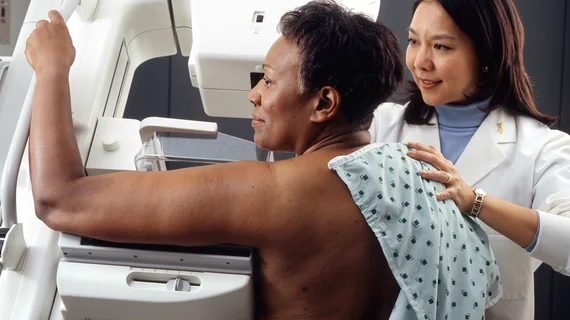False-positive mammograms increase a woman’s breast cancer risk
Women who experience false-positive mammograms are at an increased risk of breast cancer for more than a decade, according to new research published in the British Journal of Cancer.
The authors collected data from more than 1.1 million women from three population-based screening programs—one from Denmark, one from Norway and one from Spain—for the study. Patients were between the ages of 50 and 69 years old.
Overall, the breast cancer rate for women with a single false-positive result was 3.63 cases per 1,000 women-years, nearly twice the rate for women with negative results (2.01 cases per 1,000 women-years). The study also aimed to examine the impact of experiencing more than one false-positive mammogram result. More than 8,000 women from the study had a second false-positive screening results, and they were more frequent among women between the ages of 55 and 59. The breast cancer rate for those women was 5.66 cases per 1,000 women-years.
“We identified a two-fold higher risk of screen-detected and interval breast cancer among women with prior false-positive results compared to those with negative tests,” wrote Marta Román, MD, department of epidemiology and evaluation at the Hospital del Mar Medical Research Institute in Barcelona, Spain, and colleagues. “The risk similarly increased four-fold after a second false-positive screening result.”
The researchers also found that the increased risk remains for 12 years following the false-positive result.
“The sustained long-term increased risk strengthens the idea of a biological susceptibility for developing future breast cancer in women with mammographic abnormalities,” they wrote. “The results suggest that the mammographic abnormalities might be risk markers rather than precursors of subsequent breast cancer. This is consistent with the excess breast cancer risk found in women with a benign breast disease.”

